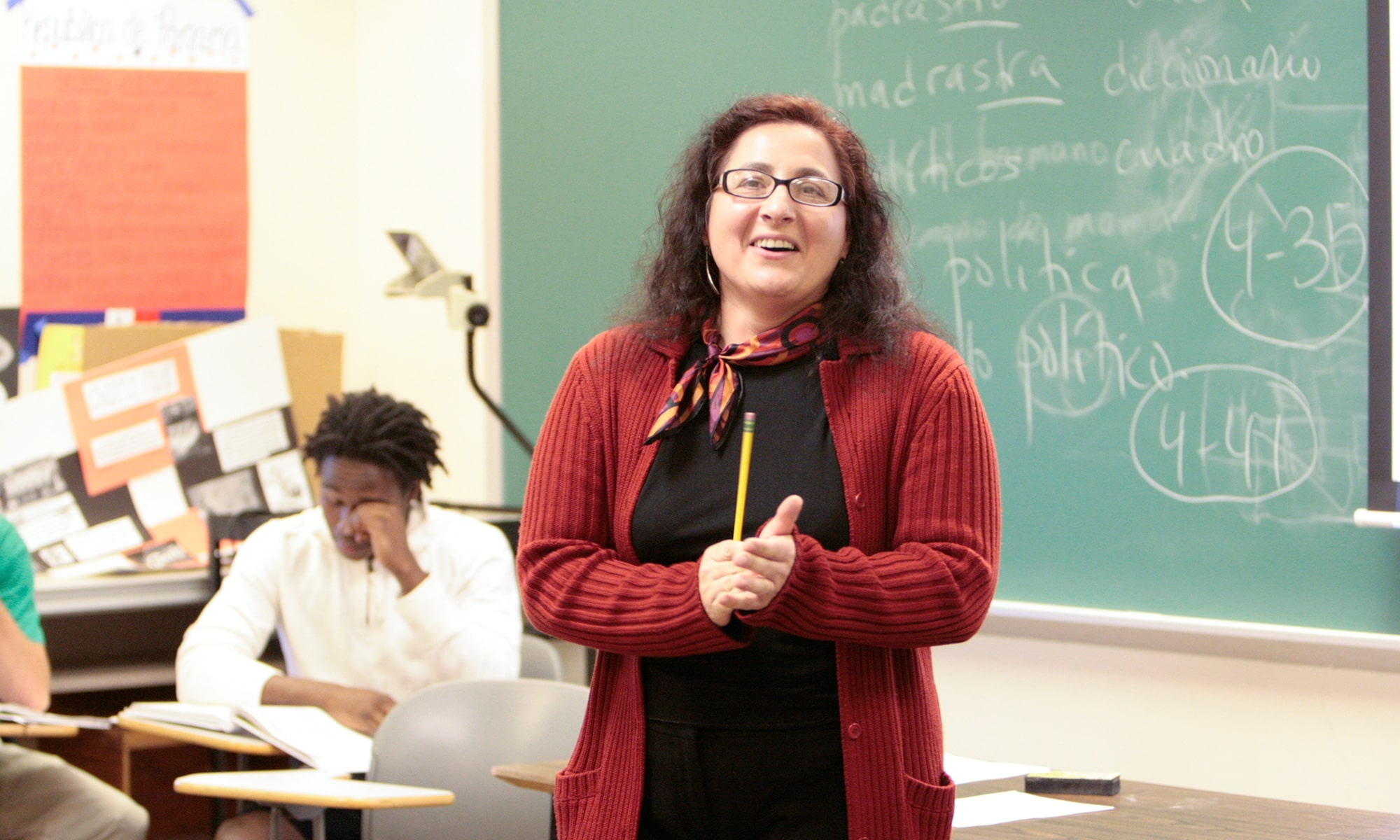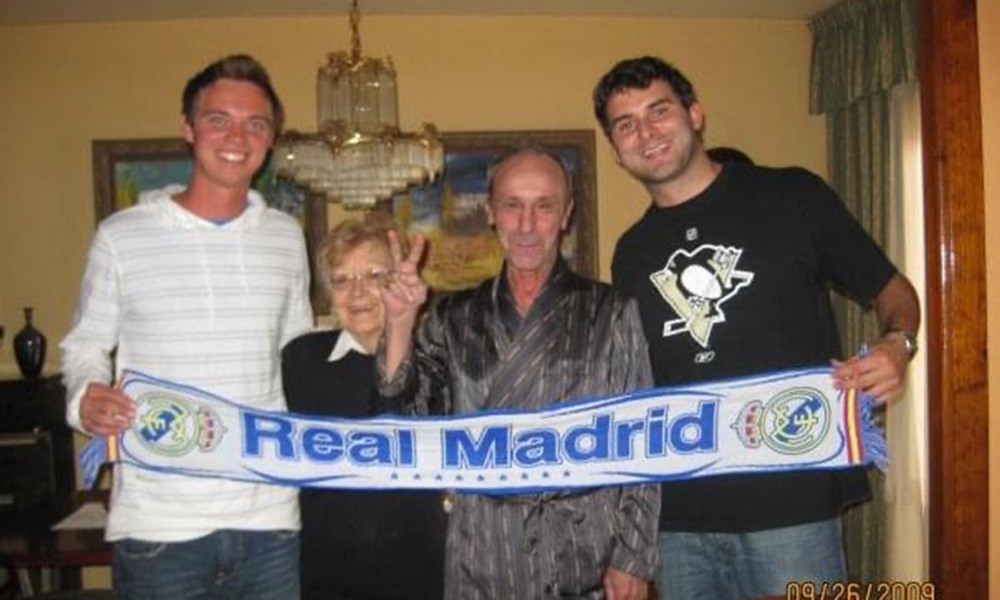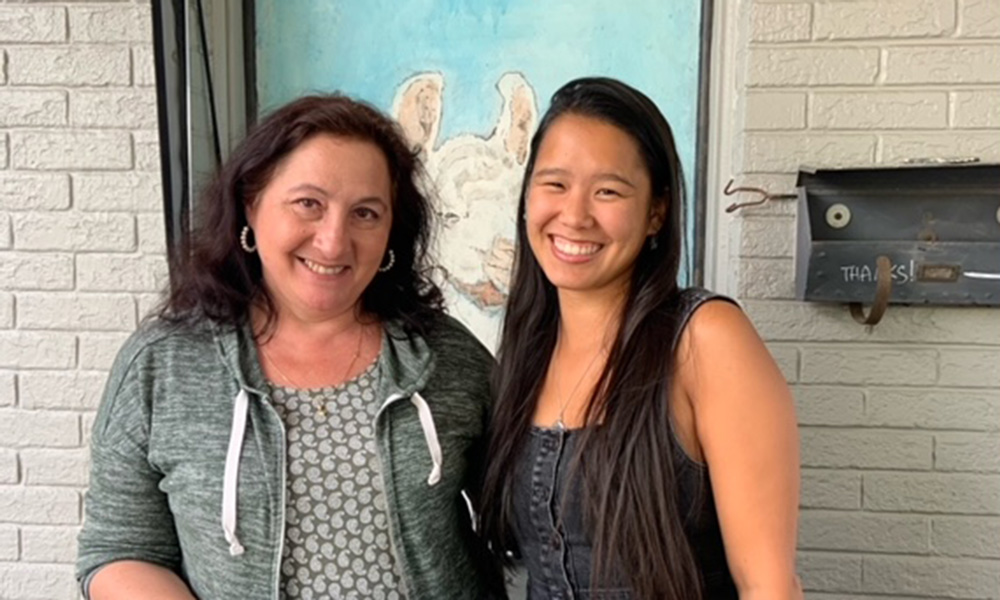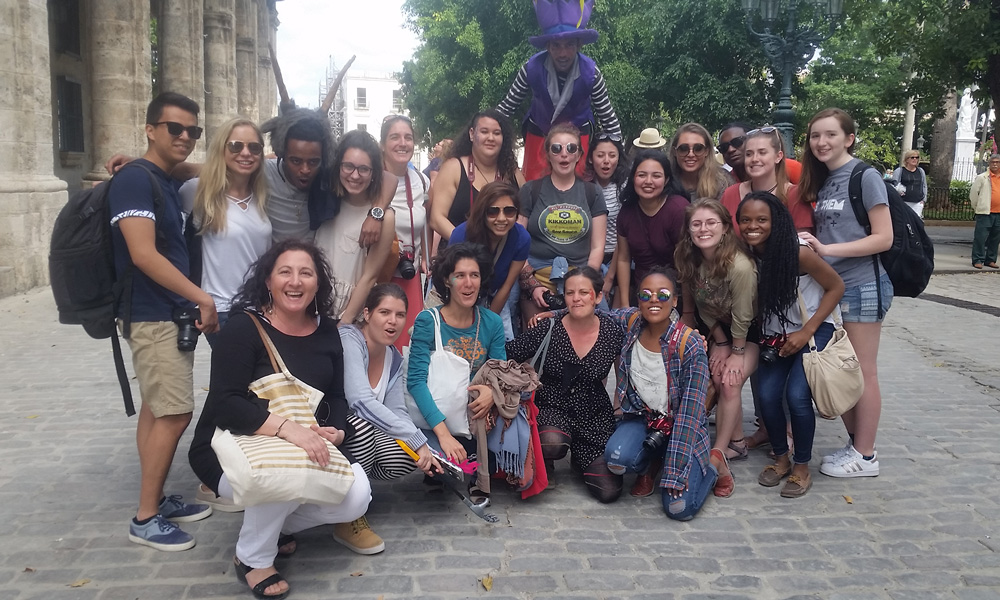“Me gusta,” says Dosinda Alvite, “doesn’t really mean what you think it does.” The associate professor of Spanish says the phrase many English speakers translate as “I like” actually has much deeper meaning. More accurately, “Me gusta” means “this is pleasing to me.”
“In Spanish, you are a receiver of something you like. ‘Me gusta’ is a relational comment — it reflects the Spanish culture and way of looking at things, which is a very relational view of life,” she says.
Relationships build trust and language proficiency
This explanation embodies the role relationships play in her teaching. Alvite, who was honored with the 2022 Brickman Teaching Award, given to “a master craftsman in the profession,” believes her students learn best when they are in it together. And she is there alongside them.
“It’s fun because you are always connecting with others in class,” says Alvite. “Language is not like the Rosetta Stone. You have to practice. It’s interrelational, interpersonal. We always increase the relationship.”
Tim Dukovich ’09, an executive director with Morgan Stanley in New York, recalls how Alvite encouraged him. “She spent hours and hours with me, going over my papers, chatting as I struggled to speak to her in Spanish. She made me feel comfortable and made it fun and exciting,” he says.“It’s because of Dosy that I chose to study Spanish beyond the requirement, and it’s because of her I studied abroad in Spain.”
Today, Dukovitch employs a Spanish-speaking nanny for his two children, and he speaks Spanish to them as well. “And it’s because of Dosy that I want my children to grow up with a second language.”
1. Tim Dukovich ‘09 returns to Granada, Spain to visit his host family. From left: and Brian Higgins ‘09, Estrella (Mama) Gabriel, Don Gabriel, and Dukovich.
2. Alvite and Josi Miller ‘20
Josi Miller ’20 has a dozen examples of how Alvite builds relationships. “She invited me to her home, drove six hours to meet me in Spain, helped me with my Fulbright application, and challenged me to apply to the Smithsonian for an internship, which I got,” says Miller, who majored in Spanish as well as anthropology and sociology. Today she lives in Charleston, S.C, and is a project manager while weighing future career options.
“Dosy helped me find the balance between my voice and the community I was researching, and she expected me to write it in Spanish,” she says, “which was definitely outside my comfort zone.”
Conducting research that contributes to communities
Given that she teaches seminars on creativity, it’s not surprising Alvite doesn’t want her students to simply write a research paper. Instead, she urges them to engage in a community — and contribute to it. Students take part in activities that build and demonstrate knowledge, and they challenge themselves, too.
For example, students created a series of podcasts around their conversations with leaders of long-standing immigrant-based organizations in Spain, North Africa, and other areas of the world. “They don’t just read an academic article, they hear real-life experiences,” Alvite says.
Her students also have served at Hispanic schools and clinics in Columbus, immersing themselves in the people and culture. They took what they learned and built a website that provides information about places where Spanish-speaking people in Columbus can find entertainment, social services, medical services, educational resources, even churches and other places of worship.
“They are not just repeating knowledge, but actively contributing to it, she says.” And they’re helping the people they know build stronger communities.
Linguistic nuances improve intercultural understanding
Community is integral to Alvite’s scholarship. Her research focuses on migration, immigration, and emigration. Ultimately this is about relationships and intercultural understanding — and linear thinking is not always the right path forward.
While unambiguous logical thinking is valued in North America and Europe, that’s not the case everywhere, says Alvite. “In other cultures, the goal is not to be so straightforward. The goal is to connect with people, which takes more time. It’s reflected in language syntax that is more complex but also offers different views and values.”
Understanding language is much more than understanding grammar rules, she says. “We have to discern the motivation and worldview of the people using those languages.” Alvite especially sees the challenges for multicultural countries such as the United States, where people speak English well, but miss the deeper context of the words that are shaped by the cultures where they are raised.
She understands these issues on a personal level, too. Alvite grew up in Spain, where, under the Franco dictatorship, members of her family moved to England, Switzerland, Argentina, Brazil, and Cuba. She has also seen that with the advent of democracy, that tide has turned and the flow of people back into Spain has increased more than tenfold. This has created new difficulties, but welcome ones.
Life in Spain informed Alvite’s approach to teaching as well. Her home was at the end of the Camino de Santiago. “The Way,” as it is popularly known, is a Catholic pilgrimage walked by more than 200,000 people annually. In recent years, it has taken on new life as a spiritual journey for all faiths.
Alvite has seen and experienced the effects of walking The Way, and as a result, incorporates movement into her teaching. “Even if you don’t have faith, the walk has deep meaning because it uses your whole body. Kinetic learning can be transformative.”
Her keen interest in understanding the interweaving of people and societies may be most evident in a course titled “Translation Studies: On Being Translingual and Transcultural.” She and her students explore the effects of the flow of language and culture worldwide.
“It happens everywhere and in unexpected ways,” she says. “Translation facilitates global communication: it strengthens political relations, economic progress, and cultural understanding.”
“For example in literature, Dr. Seuss’s Green Eggs and Ham was one of the hardest books to translate into Spanish and retain the fizzle and sizzle of the English original. Aida Marcuse’s version in which Sam becomes “Juan Ramón” and eats “jamón” sold over 200,000 copies because of her ability to convey the rhythm, tone and energy of the primary text.”
“I love what I do. I love the idea of a liberal arts college where you get to know students personally, not just the mind,” says Alvite, who, when she first came to Denison, thought about moving elsewhere but chose to live in Granville. “I am able to have many students in my home. I really love the idea of getting to know them and seeing them evolve.”



